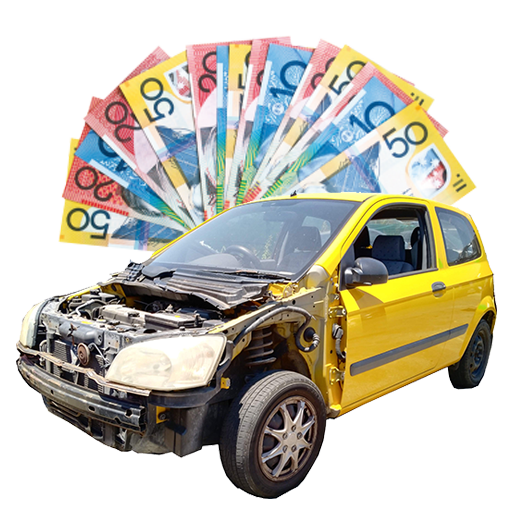So, that old car taking up space in the driveway doesn't have to be a constant headache. Figuring out how to get rid of an old car really just comes down to picking the best path for its current state. In Australia, you've got a few solid choices: selling it yourself, trading it in, using a cash-for-cars service for a fast exit, or sending it to the wreckers if it's seen better days.
Your Options for Disposing of an Old Car
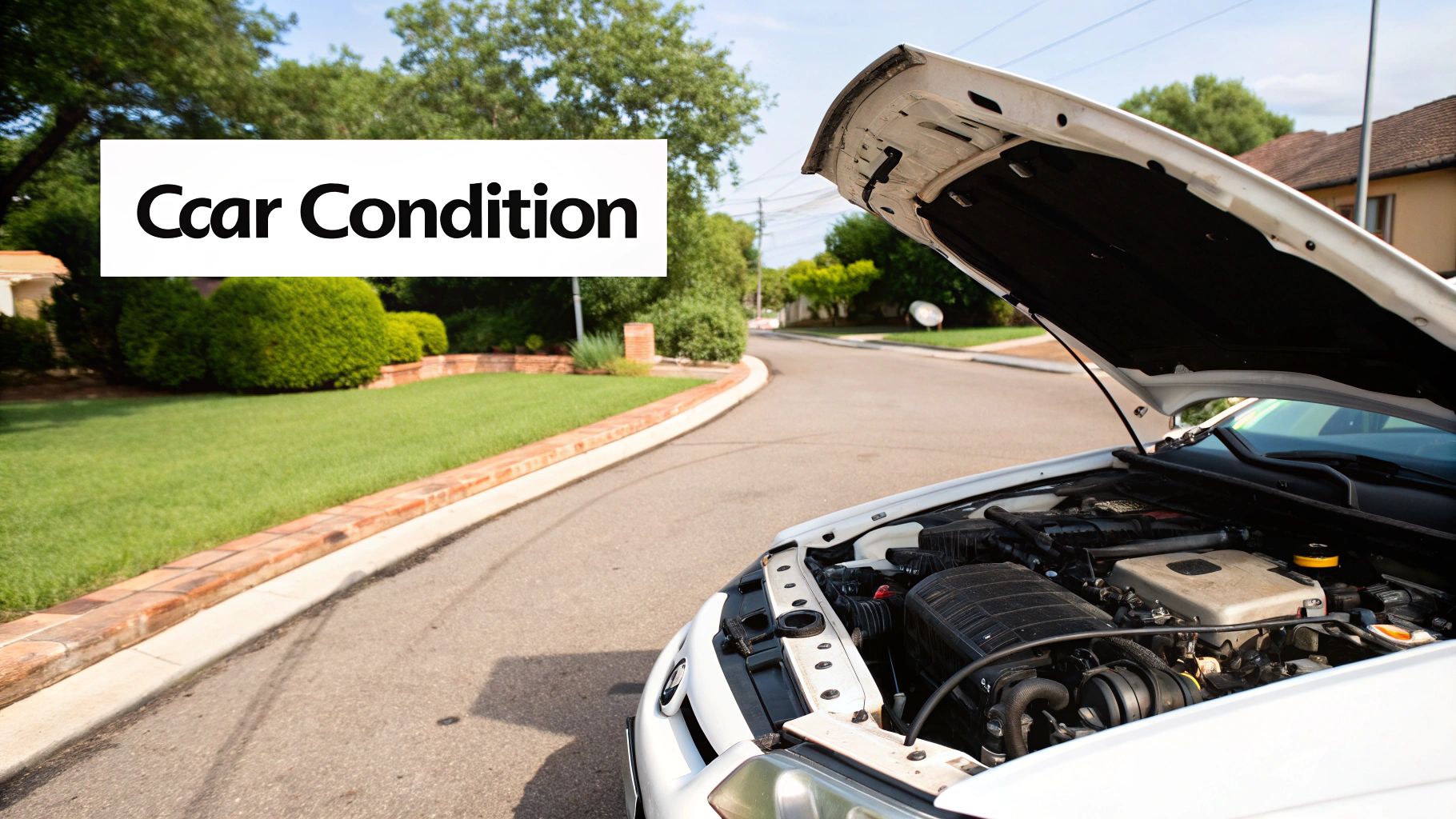
Before you can finally say goodbye to that car, you need to get a clear picture of the routes available. Each one is a trade-off between how much cash you’ll get, how easy it is, and how much time you'll need to sink into it. The right choice really hinges on your car's condition, how quickly you need it gone, and frankly, how much hassle you're prepared to deal with.
Think about it this way: a 15-year-old Toyota Corolla with a heap of k's but a reliable engine could be a great buy for a first-time car owner. On the other hand, that sedan that's been sitting unregistered for two years, gathering rust with a flat-as-a-tack battery? That's got "car removal service" written all over it.
Weighing Up Your Main Choices
Let's be realistic. When you're trying to figure out how to get rid of an old car, it almost always boils down to one of four main avenues. Here’s a no-nonsense look at what each one actually means for you.
- Selling It Privately: This is your best shot at getting the most money in your pocket. The catch? It's also the most work. You'll be taking photos, writing ads, fielding calls from tyre-kickers, organising inspections, and navigating all the transfer paperwork on your own.
- Trading It In: If you're buying a new set of wheels from a dealership, this is by far the easiest option. They'll just knock the trade-in value off the price of your new car. Just know that you'll almost certainly get less cash than if you sold it privately.
- Using a Cash-for-Cars Service: This is the perfect solution for cars that are a bit long in the tooth, damaged, or simply won't start. These services are built for speed—they give you a guaranteed sale with zero fuss and usually throw in free towing.
- Scrapping or Wrecking It: This is the final stop for a car that’s well and truly past its use-by date. You'll get paid for its scrap metal value, and the whole process is typically over and done with in a day or two.
I've seen it time and time again: people sink hundreds, sometimes thousands, into fixing up a car that’s only ever going to be worth its weight in scrap. A quick, honest valuation can save you a fortune by telling you when it’s time to stop spending and start scrapping.
How to Figure Out What Your Old Car is Actually Worth
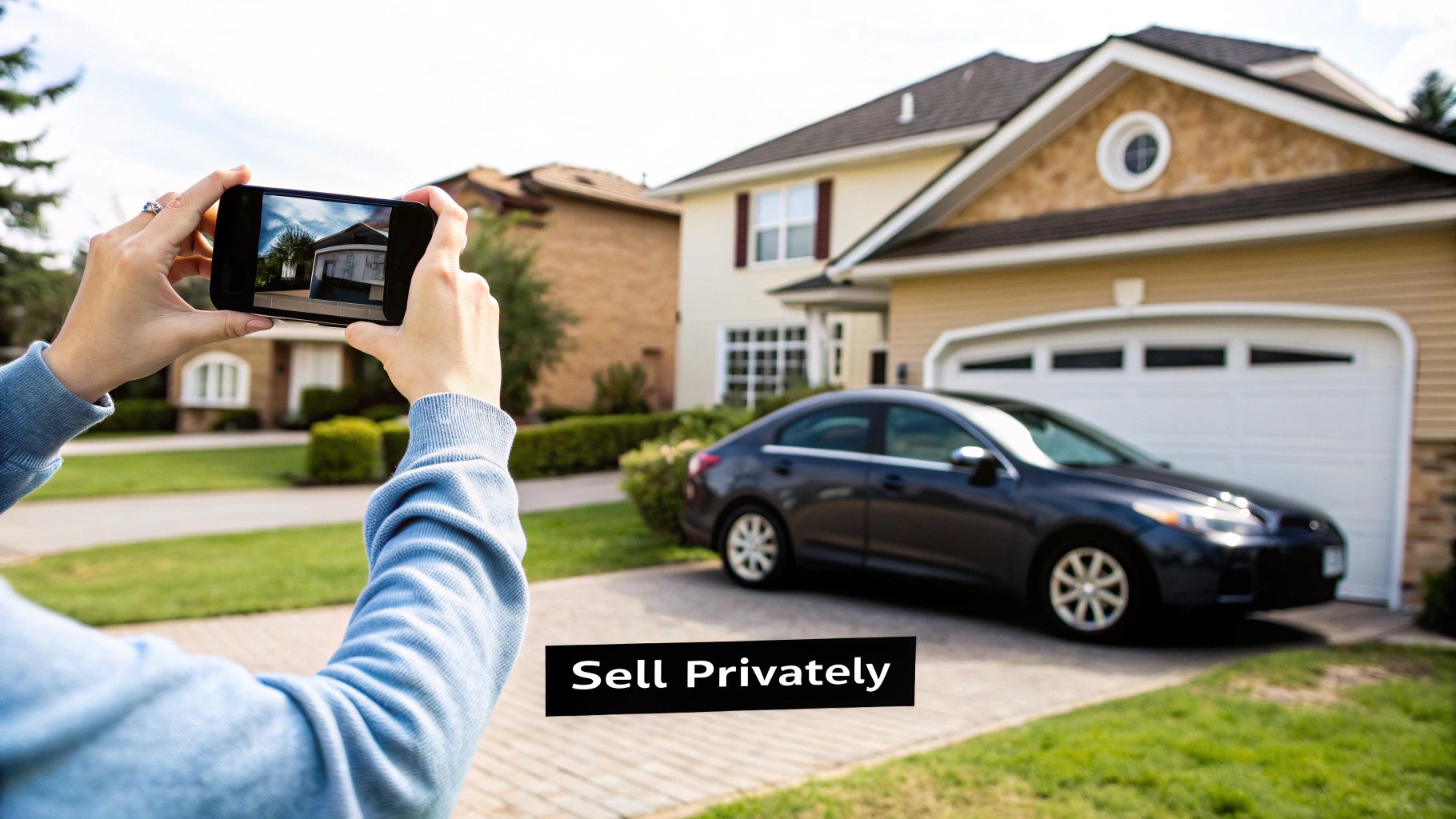
Before you even think about getting rid of your old car, you need a realistic number in your head. It’s easy to get this wrong – you either leave cash on the table by under-selling or waste weeks trying to find a buyer for a car that’s really just scrap metal. The first step is to take off the rose-tinted glasses and look at the cold, hard facts.
At its core, your car's value comes down to a few basic details: its make, model, year, and how many kilometres it's clocked up. A 2010 Mazda 3 with 150,000 km on the clock is a totally different proposition from a 2002 Ford Falcon that’s done 300,000 km and sounds like a bag of spanners.
Give it an Honest Inspection
Time to get a clear picture of your car's true condition, warts and all. You have to be brutally honest here, because any potential buyer or wrecker definitely will be. Grab a notepad and zero in on these key areas:
- Mechanical Health: Does it actually start and run? Any warning lights glaring at you from the dash? Make a list of everything you know is wrong, whether it's a dodgy transmission, a slipping clutch, or an oil leak. A car that can be driven away is always worth more than one that needs a tow.
- Body and Interior: Do a slow walk-around. Look for any big dents, spreading rust, or serious paint damage. Inside, is the upholstery torn, are there major stains, or is the dashboard cracked? A bit of wear and tear is normal, but significant damage will seriously drop the price.
- Tyre Condition: Have a good look at the tread on all four tyres. If they're bald or don't match, a private buyer will immediately knock the $400-$600 replacement cost off their offer.
Don't sweat the small stuff too much. A private buyer looking for a cheap runabout might not care about a few scratches if the engine is solid. On the other hand, a cash-for-cars service is more interested in the scrap metal weight and key parts they can salvage, not the cosmetic flaws.
With your list of pros and cons sorted, jump online and see what the Australian market is doing. Check out online marketplaces for cars just like yours—same age, similar mileage, and in comparable condition. This gives you a real-world price bracket and helps you decide if it's worth the effort of a private sale or if it's time to make a quick call to a car removal company.
Sorting Out the Paperwork for a Clean Break
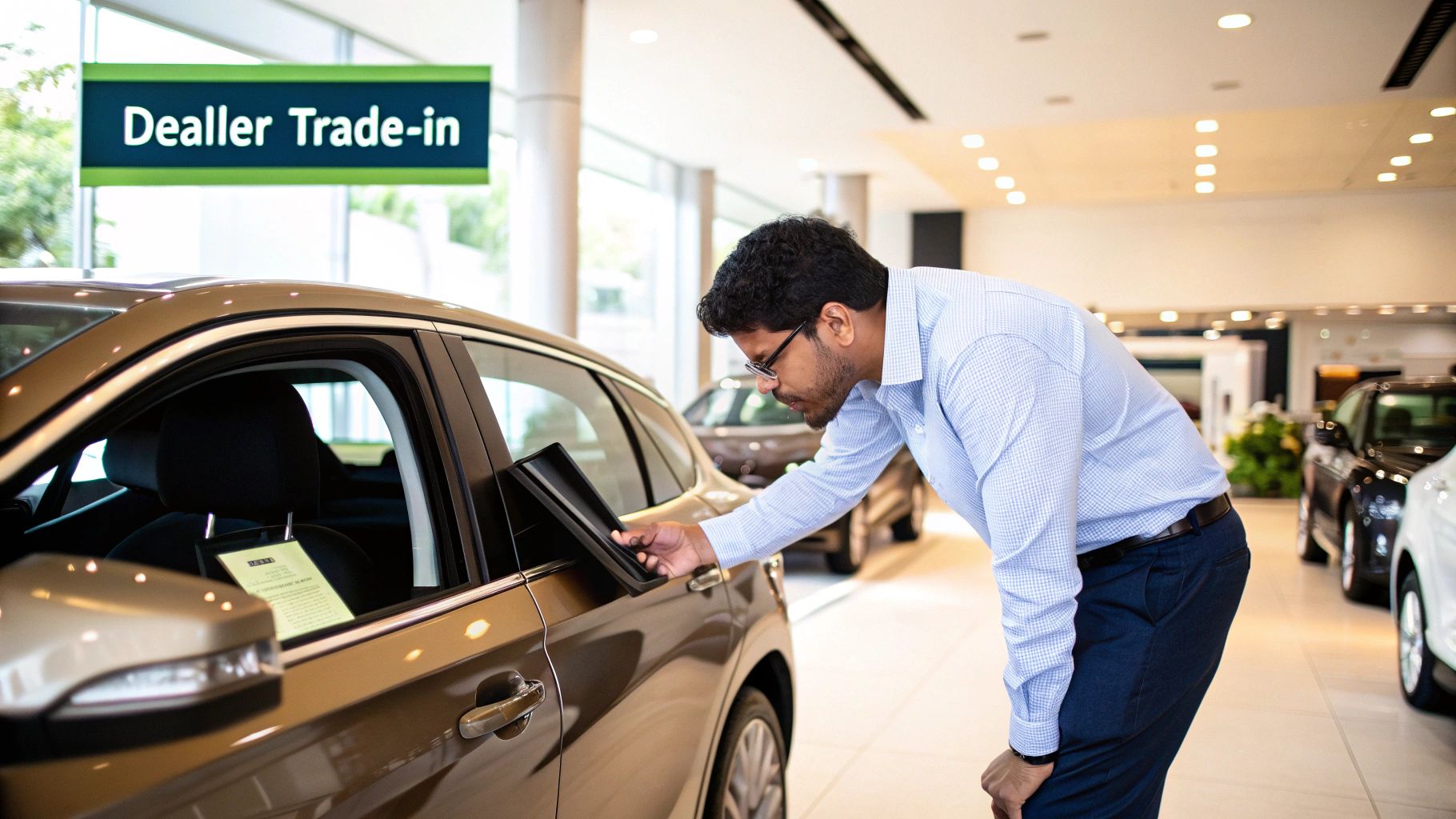
Before your car gets towed away for the last time, there's one final, crucial step: the paperwork. It might seem like a bit of a chore, but getting this right is what officially ends your responsibility for the vehicle. It's the move that protects you from any future fines or tolls being sent your way.
Think of it as your legal shield. Without correctly lodging the transfer, you could still be on the hook for anything that happens with that car, even months down the track. Trust me, you don't want a surprise speeding ticket showing up simply because the change of ownership was never officially recorded.
Your Essential Document Checklist
Getting your documents in order is actually quite straightforward. You'll just need to pull together a few key items to make sure the handover is smooth and, most importantly, legally sound.
- Proof of Ownership: This is usually your vehicle's registration certificate with your name on it, or perhaps the original purchase receipt.
- Vehicle Registration Papers: The current rego details are non-negotiable for the transfer process.
- Your Driver's Licence: The car removal service will need to see this to verify your identity against the ownership documents.
What happens if you've misplaced something important? Don't panic. You can nearly always request a replacement from your state's transport authority, like VicRoads or Transport for NSW. It’s a minor inconvenience that prevents major headaches later. For a deeper dive, our guide on how to dispose of a car has a few more tips on navigating these requirements.
My best piece of advice? Never, ever hand over your keys without completing the Notice of Disposal. This is the single most important form. It’s your official declaration to the government that you no longer own the car, releasing you from all future liability.
With roughly 850,000 vehicles reaching the end of their life in Australia each year, getting the documentation right is a huge part of responsible car recycling. It’s not just about you; it’s about making sure the whole process is accountable from start to finish. You can see how the industry is tackling this in this in-depth report on end-of-life vehicles.
Choosing the Best Disposal Method for Your Car
Alright, you've figured out what your old car is worth and you’ve got the paperwork sorted. Now for the big decision: how to actually get rid of it? The best path forward really boils down to what you value more – getting top dollar or saving yourself time and hassle.
Let's break down the common ways people offload their old vehicles.
The Trade-Off: Cash vs. Convenience
Selling your car privately will almost always put the most money in your pocket. It's the best route if you have something desirable, say, a 10-year-old hatchback with a solid service history that a first-time car owner would love. The catch? You have to do all the work: advertising it, fielding calls from tyre-kickers, and navigating the final sale.
On the other end of the spectrum is the dealership trade-in. This is all about pure convenience. You drive in with the old, drive out with the new, and they handle everything in between. You won’t get as much as you would selling it yourself, but for a car that’s still in decent shape, skipping the private sale headache can be well worth it.
When It's Time for a Quick Exit
What if your car is past its prime? Maybe it has a blown head gasket, some serious panel damage, or it's just too old to find a buyer. This is where car removal and cash-for-cars services shine.
They offer a guaranteed sale, often with instant payment and free towing, which is a lifesaver for a non-runner. It’s a clean break. This is hands-down the most hassle-free solution when you just need the car gone.
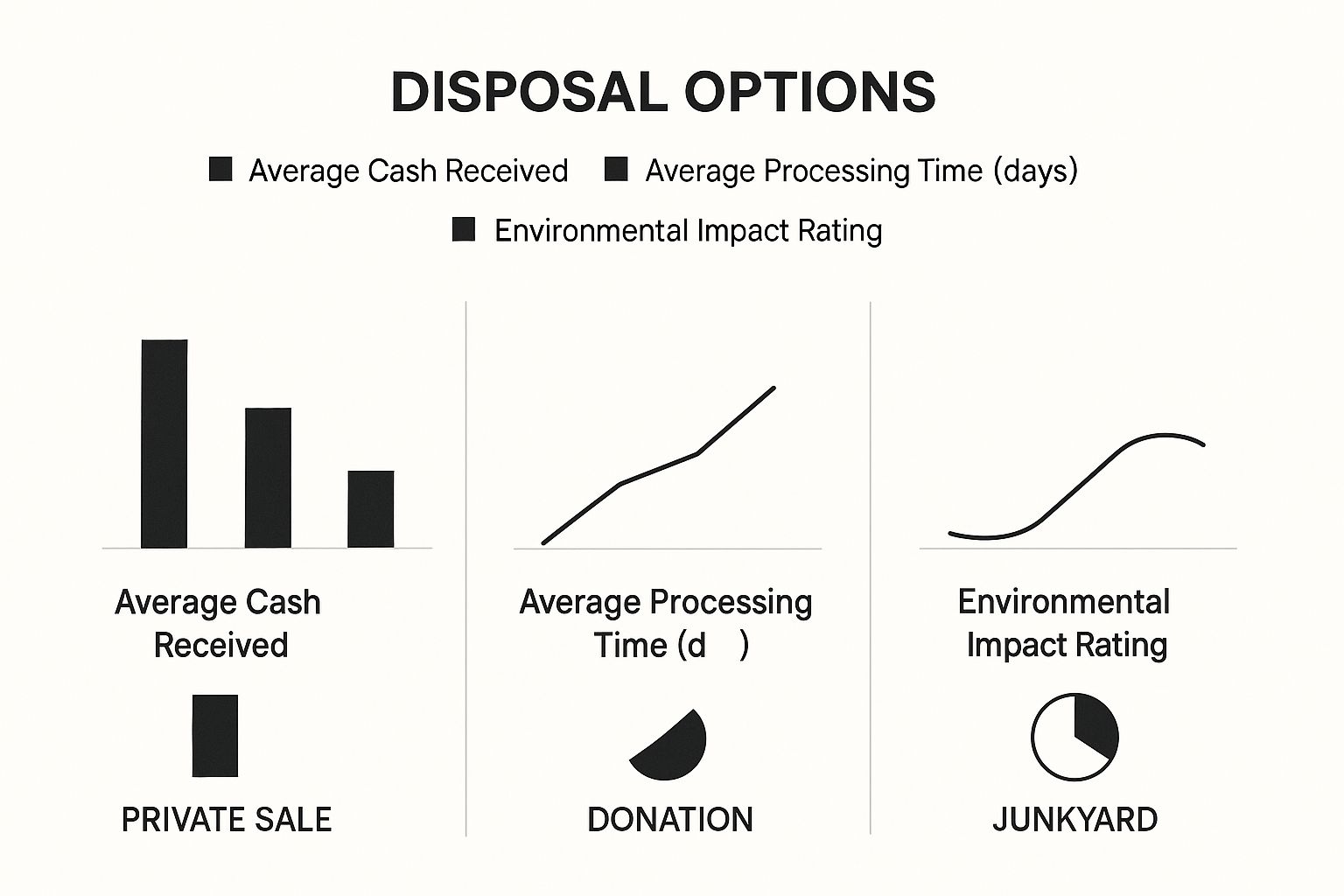
This quick comparison helps illustrate the main differences between your options.
Car Disposal Methods Compared
Deciding how to part with your car involves weighing up potential returns against the effort involved. The right choice depends entirely on your car's condition and your personal priorities. Here’s a simple breakdown to help you compare the most common methods at a glance.
| Method | Potential Return | Effort Required | Best For |
|---|---|---|---|
| Private Sale | High | High | Roadworthy, desirable cars with good history. |
| Dealership Trade-In | Low to Medium | Low | Decent condition cars when buying a new vehicle. |
| Car Removal/Wrecker | Low | Very Low | Old, damaged, or non-running vehicles. |
| Auction | Varies | Medium | Classic, unique, or high-demand models. |
Ultimately, whether you're chasing the highest offer or the quickest exit, there's a method that fits. For older or damaged cars, the efficiency of a car removal service is hard to beat.
Choosing a reputable car removal service isn't just about convenience. It’s also a surprisingly sustainable choice.
When you work with a licensed wrecker, you're ensuring your vehicle is responsibly dismantled and recycled, not just dumped in a landfill. It’s a choice that supports local industry and sound environmental practices.
These companies are a key part of the circular economy. They carefully recover valuable materials like steel, aluminium, and plastics from end-of-life vehicles, feeding them back into the manufacturing process. This reduces the need to mine for new resources and makes a real difference. It’s a smart move for your wallet and the planet.
Final Steps Before Your Car Is Gone
With the pickup day circled on your calendar, a few final actions will ensure the handover of your old car is completely seamless. This isn't just about tidying up; it's about making a clean break and preventing any loose ends from causing issues down the track.
The first thing to do is a thorough clean-out of all your personal items. It’s amazing what gets lost under seats or tucked away in compartments over the years. Double-check the glove box, centre console, door pockets, and especially the boot. You don't want the sinking feeling of realising you’ve accidentally handed over important documents or sentimental items.
Managing the Final Details
Once you've cleared out your belongings, a quick clean can make a surprising difference, particularly if you're selling to a private buyer. It just shows you've cared for the vehicle and can help the final inspection go smoothly. Of course, if it's heading for the scrap heap, a deep clean isn't necessary.
The most critical steps, however, involve the official transfer of ownership. Here's what you absolutely must do:
- Remove the Number Plates: In most Australian states, it's your responsibility to take the plates off the vehicle yourself before it gets towed away.
- Cancel Your Registration: Head down to your state's transport authority (like VicRoads or Service NSW) with the plates in hand to cancel the registration. This is the crucial step to trigger any refund you're owed.
- Notify Your Insurer: Give your insurance company a call to cancel your policy. Just make sure you wait until the car is officially out of your possession to avoid any risky lapse in coverage.
Choosing a responsible disposal service is just as important as the paperwork. It ensures your car doesn't just disappear but is handled in an environmentally sound way, contributing positively to the recycling industry.
This is a bigger deal than many people realise. Australia's recycling sector processes about 1.36 million tonnes of end-of-life vehicle waste every year, but properly handling all the non-metal components remains a huge challenge. For a deeper look, you can read the full industry report about vehicle recycling challenges.
Common Questions About Getting Rid of a Car
When you’re finally ready to say goodbye to your old car, a few last-minute questions always seem to pop up. Getting the right answers is key to a smooth process and ensures you don’t run into any headaches after the tow truck has driven away. Let's clear up some of the most common queries we hear.
A big one that often causes stress is missing paperwork. What happens if you can't find the original title or registration?
Can I Scrap a Car Without a Title?
Believe it or not, yes, you usually can. Selling a car privately is pretty much a non-starter without proof of ownership, but established car removal companies have ways to work around this. They can typically verify that you're the legal owner using your driver's licence and the car’s Vehicle Identification Number (VIN).
That said, having your documents ready is always the best-case scenario. If you’ve misplaced them, it’s worth contacting your state’s transport authority to get replacements sorted.
What Should I Do With the Number Plates?
This is a step you absolutely can't forget. Before the car is towed away, you need to physically remove the number plates yourself.
Once they're off, your next stop is the local transport authority (like Service SA here in South Australia). Returning the plates is the official step that cancels your car's registration, and it’s what triggers any potential refund you might be owed for the unused portion.
It can be tempting to sell a car for parts, but that road requires a lot of mechanical know-how, storage space, and patience. For most of us, a professional car removal service is the simplest path—one transaction, zero fuss, and instant cash.
For a deeper dive into your options, check out our guide on where to get cash for cars in Adelaide for old cars to learn just how easy it can be.
Have an old, broken, or unwanted car taking up space? Auto Removal Adelaide is ready to help. We offer competitive cash prices—up to $8,999—with on-the-spot payment and free towing anywhere in Adelaide. Turn that old vehicle into cash by visiting https://autoremovaladelaide.com.au today.

